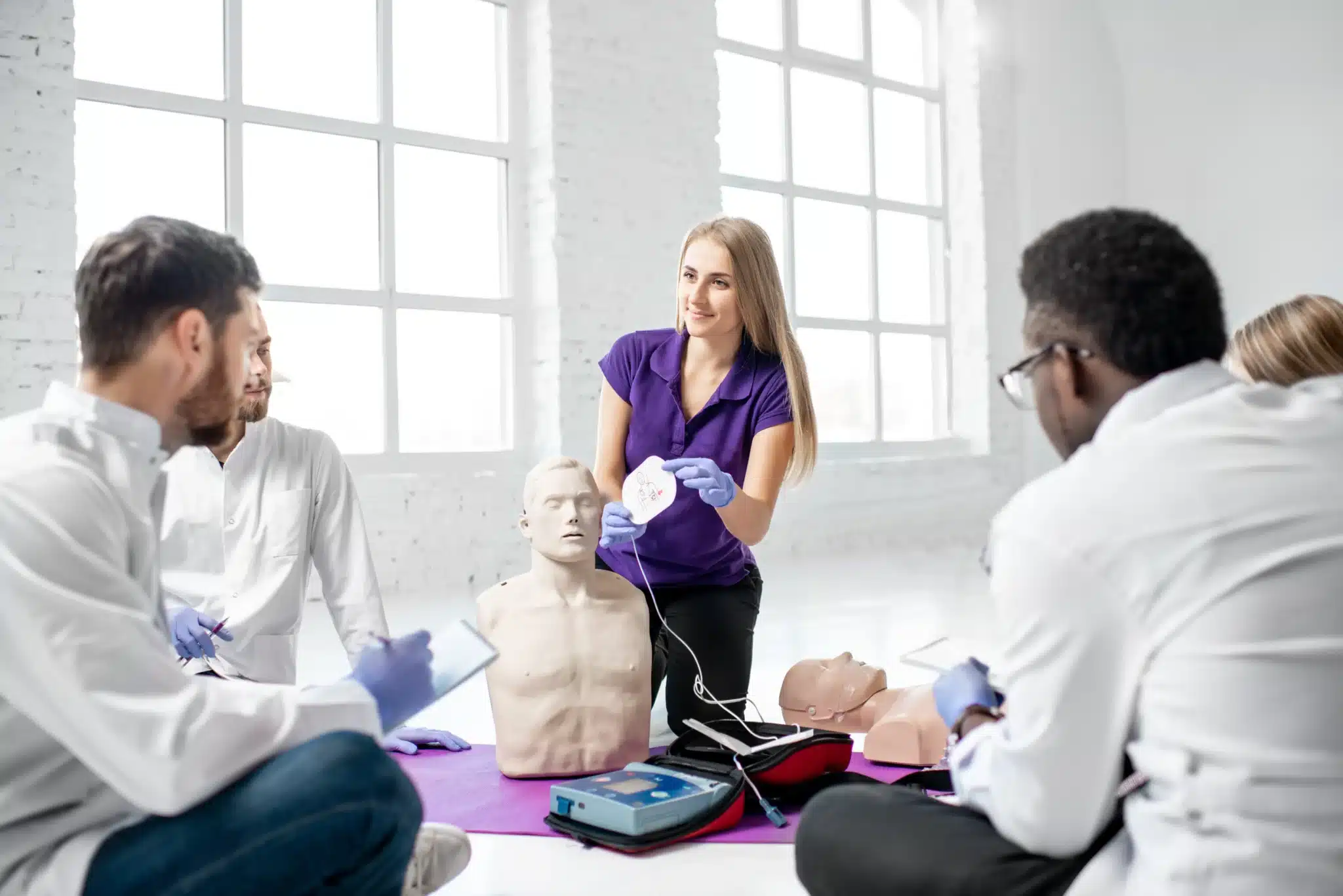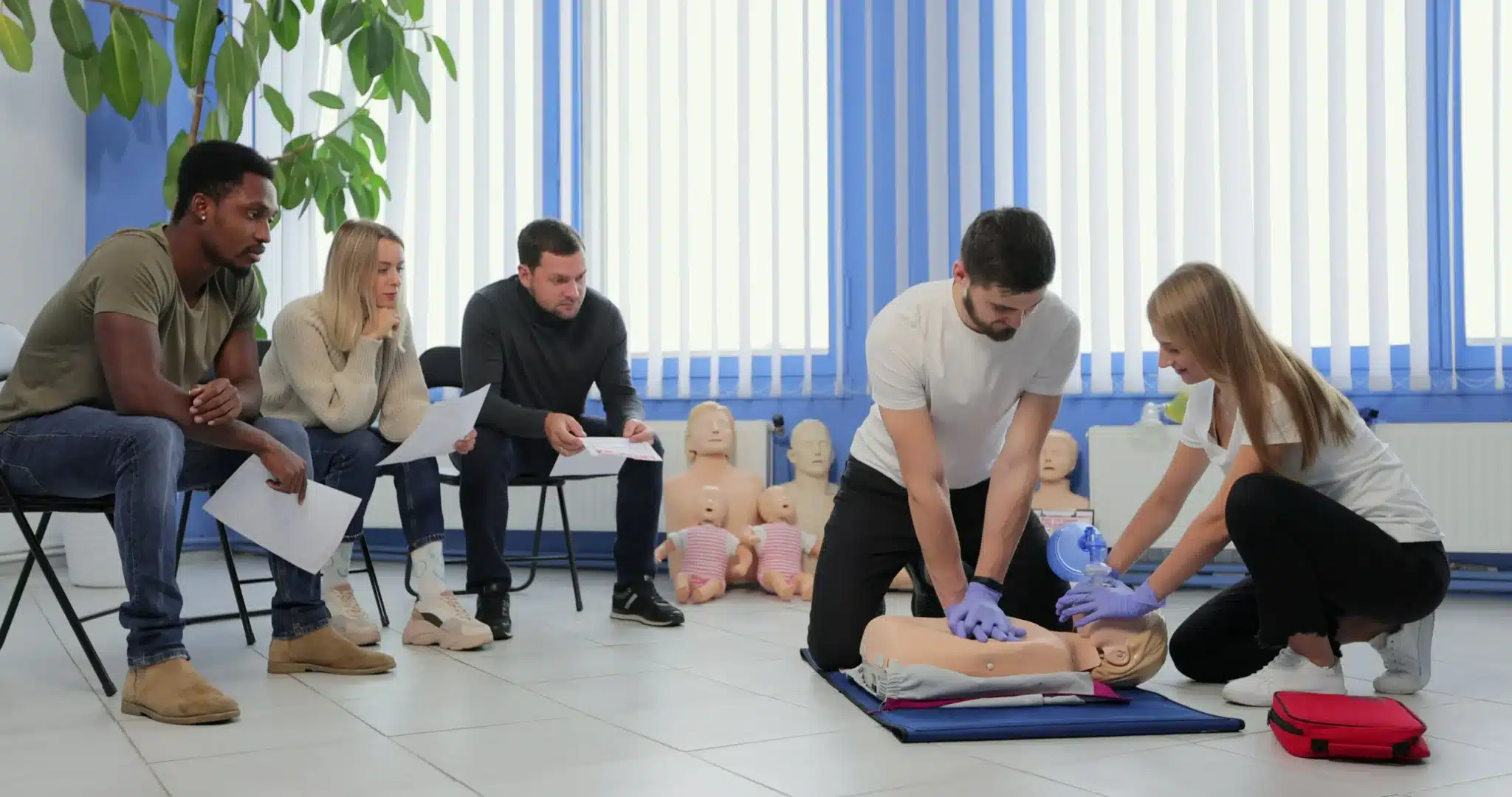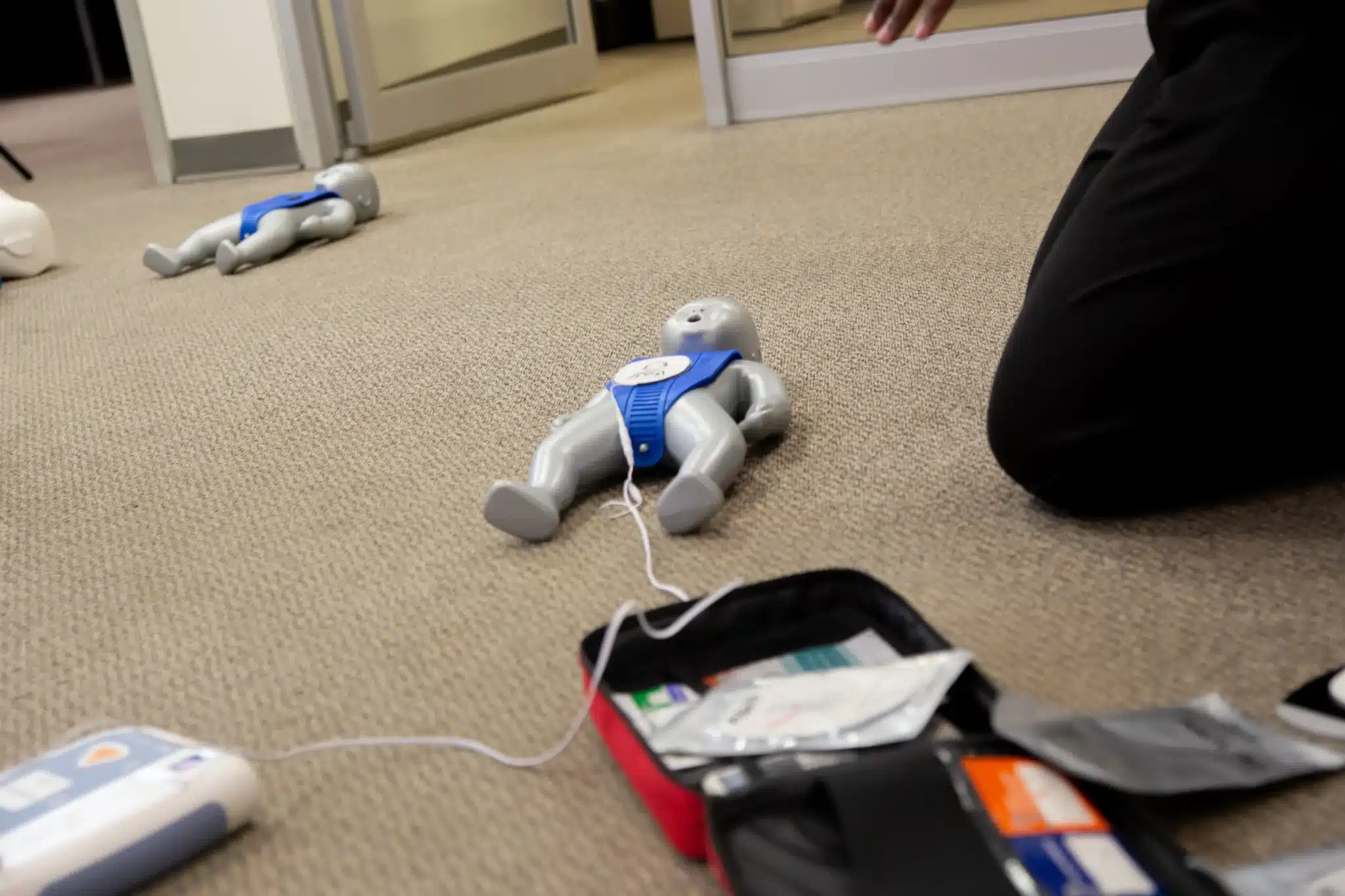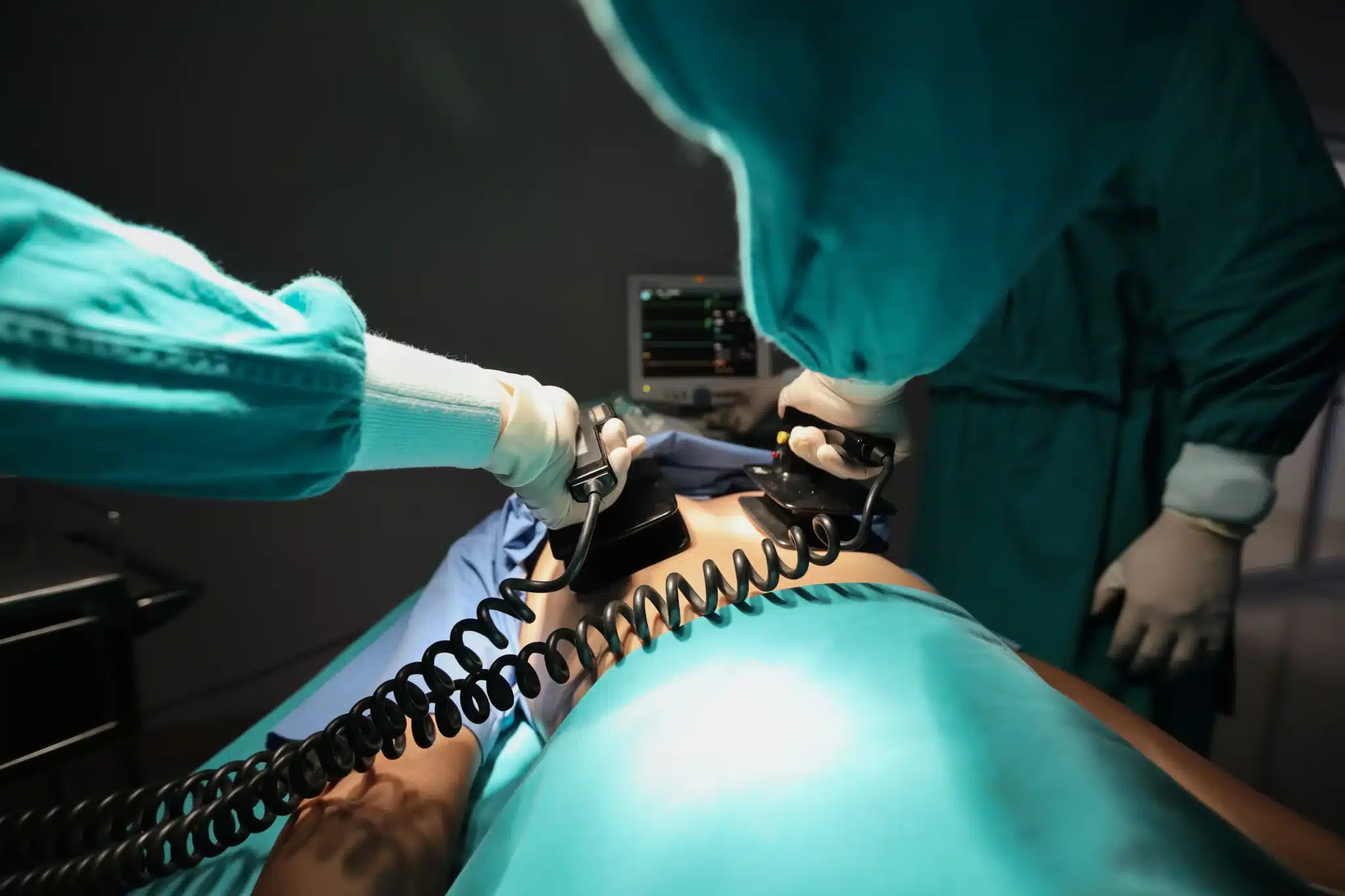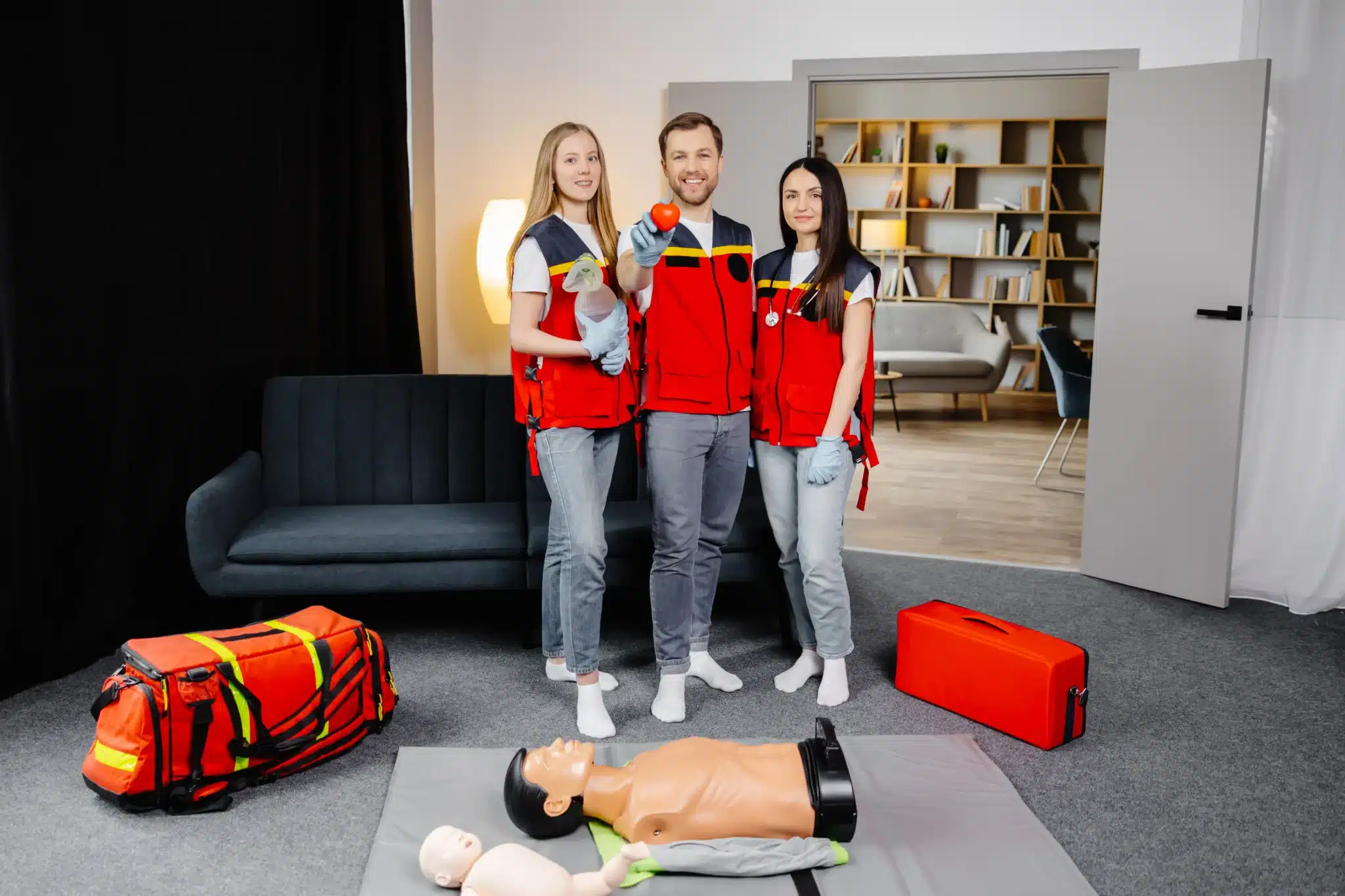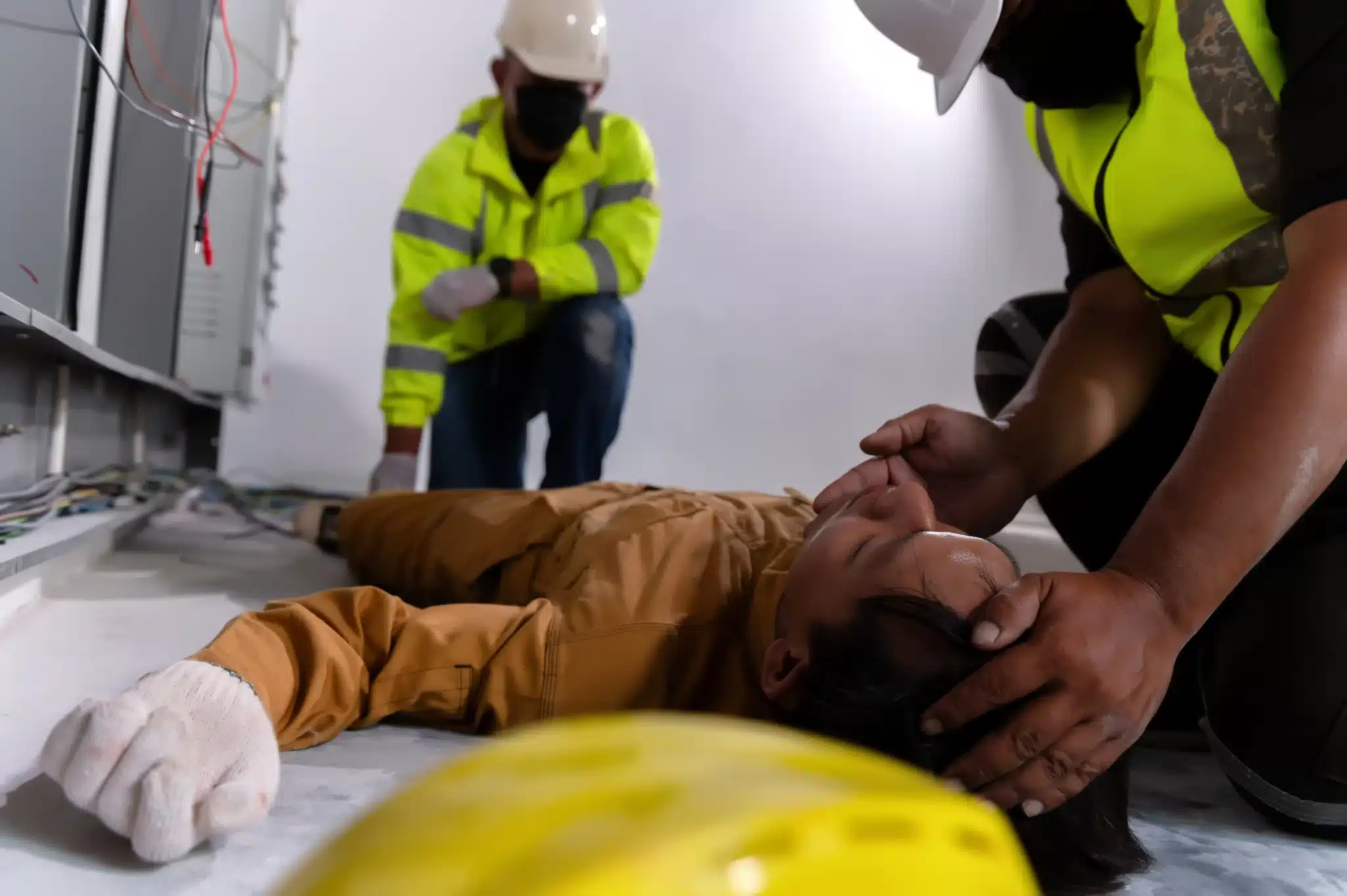ACLS Certification in Fremont: Cardiac emergencies don’t wait for convenient moments. They demand immediate, decisive action. That’s why mastering Advanced Cardiac Life Support (ACLS) is so crucial for healthcare providers. It’s the gold standard for managing life-threatening cardiovascular events, empowering you to provide the best possible care when every second counts. This comprehensive guide explores the ins and outs of advanced cardiac life support in Fremont, covering everything from the core skills you’ll learn to the process of getting certified and staying up-to-date with the latest protocols. Whether you’re a seasoned healthcare professional or just starting your journey, this guide will help you find the right ACLS training to elevate your skills and confidence.
Key Takeaways
- ACLS is essential for healthcare providers: It provides the knowledge and skills to manage life-threatening cardiovascular emergencies, focusing on early intervention and teamwork. Regular practice and staying updated are key to maintaining proficiency.
- Choosing the right ACLS course is crucial: Seek out AHA-certified training centers with experienced instructors, a mix of online and hands-on learning, and realistic simulations. Ask about instructor credentials, course structure, and recertification processes.
- Complement ACLS with other certifications: BLS builds a strong foundation, PALS addresses pediatric emergencies, and First Aid/CPR expands your skillset for various situations. The RQI program offers a convenient way to maintain certifications.
What is Advanced Cardiac Life Support (ACLS)?
What is ACLS and why is it important?
Advanced Cardiovascular Life Support (ACLS) is a set of protocols and algorithms designed for healthcare professionals to manage life-threatening cardiovascular emergencies. It’s a critical system used in hospitals, emergency rooms, and other healthcare settings. ACLS emphasizes early recognition and intervention to improve patient outcomes during cardiac arrest, stroke, and other acute cardiovascular events. These protocols are regularly updated to reflect the latest scientific evidence and best practices in emergency medicine. ACLS isn’t just for doctors; nurses, paramedics, respiratory therapists, and other healthcare providers working in acute care settings benefit from this training. It provides a standardized approach to emergencies, ensuring everyone on the team knows their role and can work together effectively. This coordinated response is essential for providing high-quality patient care during critical situations.
Key skills learned in ACLS training
ACLS training isn’t just about memorizing algorithms; it’s about developing critical thinking and problem-solving skills in high-pressure situations. The training often involves realistic simulations that mimic real-world emergencies. These scenarios allow participants to practice essential skills like CPR, using a defibrillator, administering medications, and managing airways. Hands-on practice with these techniques builds confidence and competence, preparing healthcare professionals to respond effectively in actual emergencies. Beyond technical skills, ACLS courses also emphasize effective communication and teamwork. Participants learn how to clearly communicate patient information, delegate tasks, and work together seamlessly during a crisis. This team-based approach is crucial for coordinating care and ensuring the best possible outcome for the patient. To get a better sense of the types of scenarios encountered in ACLS training, check out this resource from Cascade Training Solutions.
Get ACLS Certified in Fremont
Who needs ACLS certification?
ACLS certification is crucial for healthcare providers who may encounter cardiopulmonary emergencies. Think physicians, nurses, paramedics, and respiratory therapists. Anyone working in emergency rooms, intensive care units, and other critical care settings will find this training invaluable. Paramedics and EMTs also use ACLS training to manage emergencies before reaching the hospital. If your work involves responding to and managing cardiac arrests and other life-threatening cardiovascular emergencies, ACLS certification is likely essential for you.
Initial certification vs. renewal
Good news: once you earn your ACLS certification, it doesn’t expire. However, the medical field is constantly evolving. Staying current with the latest guidelines and best practices is critical for providing excellent patient care. That’s why recertification is highly recommended, typically every two years. This ensures your skills and knowledge remain sharp and aligned with current standards. Think of it as a tune-up for your life-saving abilities. Check out our ACLS recertification courses to stay at the top of your game.
Common ACLS misconceptions
One common misconception is that ACLS is just advanced CPR. While CPR skills are part of ACLS, the training covers a much broader range of interventions, including airway management, pharmacology, and recognizing and treating various heart rhythms. Another misconception is that ACLS is only for specialists. The truth is, any healthcare provider who might face a cardiac emergency can benefit from this training. Contact us to learn more about our ACLS courses and how they can prepare you for various critical situations.
Find ACLS Classes in Fremont
Finding the right ACLS class can feel overwhelming, but several reputable providers in Fremont offer high-quality training. Here are a few options to explore:
American Heart Association (AHA) Training Centers
The American Heart Association (AHA) sets the standard for high-quality CPR and emergency cardiovascular care training. Look for official AHA Training Centers in Fremont for courses that meet these rigorous standards. These classes often incorporate advanced simulation technology, giving you realistic training scenarios and valuable hands-on experience.
Fremont CPR Classes
Fremont CPR Classes offers comprehensive ACLS certification courses aligned with AHA guidelines. They provide same-day AHA certification cards upon completion of the course, a convenient perk for busy professionals. Their experienced instructors create a supportive learning environment, focusing on practical skills and knowledge application. For businesses or groups, they also offer discounts for group classes.
Safety Training Seminars
Safety Training Seminars is a woman-owned AHA Training Center offering various life-saving courses, including ACLS. They emphasize high-quality training, equipping participants with the skills to handle emergency situations effectively. Their comprehensive approach ensures you gain a deep understanding of ACLS principles and techniques. Explore their CPR directory for more information on available courses in Northern California.
Bay Area CPR
Bay Area CPR provides a range of AHA-certified courses, including ACLS. With classes offered daily, they provide flexible scheduling to fit the needs of healthcare professionals in Fremont and the surrounding areas. For questions or to discuss your specific training needs, contact Fremont CPR Classes.
Get ACLS Certified: The Process
Getting your ACLS certification is straightforward and designed to fit your busy schedule. Here’s what you can expect:
Learn online
The ACLS course blends online learning with hands-on skills testing. You’ll start with a self-paced online component, which typically takes three to four hours to complete. This allows you to learn the fundamental concepts of ACLS at your own speed and on your own time. For more details, review our ACLS course information.
Assess your skills in person
After completing the online portion, you’ll schedule an in-person skills session. This provides the opportunity to put your knowledge into action. These interactive sessions allow you to practice essential skills, such as CPR, defibrillation, and advanced airway management, using simulation equipment. You’ll receive immediate feedback from certified instructors, ensuring you’re fully prepared for real-world scenarios. Contact us to schedule your skills assessment.
Flexible scheduling
We understand that finding time for training can be challenging. That’s why we offer flexible scheduling options for our ACLS classes, available seven days a week, from 7 am to 6 pm. This wide range of availability makes it easier to find a time that works with your commitments. We also offer additional courses, including BLS, PALS, and First Aid. Check out our CPR directory for a full list of courses and schedules.
ACLS Class Costs & Duration in Fremont
Getting ACLS certified is an investment in your career and the safety of those around you. Understanding the costs and time commitment involved will help you plan for your training.
Average Price & Duration
In Fremont, the average cost for ACLS certification is around $290. This typically covers the online learning materials, the in-person skills assessment, and your official certification card. Fremont CPR Classes offers convenient scheduling, with classes running seven days a week, from 7 am to 6 pm.
Factors Affecting Cost
Several factors can influence the final price of an ACLS course. Some providers offer more personalized instruction or additional resources, which may affect pricing. Location can also play a role, as costs can vary between training centers. It’s always a good idea to compare a few different options before choosing a class. Fremont CPR Classes maintains a directory of CPR providers in Northern California.
Discounts & Group Rates
If you’re training a team, ask about group discounts. Many providers offer reduced rates for group bookings. This can be a cost-effective way to ensure everyone receives the same high-quality training and strengthens team dynamics. Contact the training center directly, such as Fremont CPR Classes, to discuss your needs and explore discounts.
Your ACLS Instructors in Fremont: Qualifications
Knowing the qualifications of your ACLS instructors is key to receiving high-quality training. Here’s what to look for in a top-notch ACLS instructor:
Required Certifications & Experience
Instructors teaching ACLS in Fremont should be certified by the American Heart Association (AHA). The AHA provides the gold standard in resuscitation training, ensuring your instructor is up-to-date on the latest guidelines. Experienced instructors often pursue continuing education to refine their skills and stay current with any changes in the field.
Healthcare Backgrounds
Many ACLS instructors have practical experience in healthcare settings, such as nurses, paramedics, or physicians who use ACLS principles daily. This real-world experience translates into valuable insights during training. Instructors with diverse healthcare backgrounds can offer a broader perspective on applying ACLS in various emergencies. Reach out to Fremont CPR Classes to learn more about instructor backgrounds.
Teaching Methods & Expertise
Effective ACLS instruction goes beyond lectures. Look for instructors who create engaging, interactive learning environments. In-person ACLS classes offer hands-on practice and immediate feedback, crucial for mastering essential skills. A skilled instructor will provide personalized guidance, answer your questions, and offer constructive feedback. They should also be adept at demonstrating techniques and facilitating realistic simulations.
Certifications to Complement Your ACLS Training
Earning your ACLS certification is a significant achievement. But your journey in advanced life support doesn’t have to stop there. Several other certifications can complement your ACLS training, strengthening your skills and broadening your capabilities as a healthcare provider. Let’s explore some valuable additions to consider.
Basic Life Support (BLS)
Think of BLS as the foundation upon which all other advanced certifications are built. It covers the essentials of CPR, emphasizing high-quality chest compressions and rescue breaths. A strong understanding of BLS provides a crucial base for the more complex procedures you’ll encounter in ACLS, ensuring you can effectively manage the initial stages of a cardiac arrest. Even if you already have your ACLS certification, refreshing your BLS skills is always beneficial.
Pediatric Advanced Life Support (PALS)
While ACLS focuses on adult patients, PALS equips you with the specialized knowledge and skills needed to respond to emergencies involving infants and children. This certification delves into the unique physiological differences between pediatric and adult patients, covering topics like respiratory distress, shock, and cardiac arrest in younger age groups. If you anticipate encountering pediatric emergencies, PALS is an invaluable addition to your ACLS training. It provides the confidence to handle these critical situations effectively.
First Aid and CPR
First Aid and CPR training provides essential skills for responding to a wide range of medical emergencies, from minor injuries to life-threatening situations. While not as advanced as ACLS, this training covers fundamental techniques like bleeding control, wound care, and recognizing the signs of a stroke or heart attack. First Aid and CPR certification is a practical addition to any healthcare provider’s toolkit, enabling you to provide immediate care in various emergency scenarios. Combining this with your ACLS training creates a well-rounded skillset.
Resuscitation Quality Improvement (RQI) program
The American Heart Association’s RQI program offers a flexible and convenient way to maintain your BLS, ACLS, and PALS certifications. This program uses low-dose, high-frequency training to reinforce your skills and knowledge regularly. RQI helps you stay up-to-date with the latest resuscitation guidelines, ensuring your skills remain sharp and making it an excellent complement to your initial ACLS certification.
Improve Your ACLS Skills & Confidence
Improving your ACLS skills isn’t a one-time thing; it’s an ongoing process. It’s about building confidence and competence so you can respond effectively in high-pressure situations. Here’s how to approach ACLS training as a continuous journey:
Regular Simulation Training
Regularly participating in simulated scenarios is key to mastering ACLS. These simulations offer a safe space to practice interventions in realistic, albeit controlled, environments. Think of them as dress rehearsals for real emergencies. Simulations help bridge the gap between theory and practice, allowing you to experience the complexities and challenges of real-life cardiac arrests.
Personalized Learning
ACLS isn’t a one-size-fits-all approach. Tailoring interventions based on individual patient needs, medical histories, and the specific challenges of each situation is crucial. Reflecting on past experiences, both real and simulated, can help you refine your decision-making process and adapt your skills to diverse circumstances.
Hands-On Practice
Hands-on practice is essential for developing muscle memory and solidifying your ACLS skills. In-person ACLS classes offer the ideal setting for this, providing opportunities to practice essential skills like CPR, defibrillation, and advanced airway management using simulation equipment. This tactile experience is invaluable for building confidence and proficiency.
Continuing Education & Updates
Medical knowledge and best practices are constantly evolving. Staying updated on the latest ACLS protocols and guidelines is crucial for providing the best possible care. Regularly reviewing updated training scenarios can help you maintain your skills and ensure you’re prepared for any situation. Consider refresher courses and continuing education opportunities to stay at the forefront of advancements in ACLS.
Teamwork in ACLS: Why It Matters
Teamwork is essential in any healthcare setting, but it’s especially critical during emergencies. When seconds count, a coordinated team can make all the difference for a patient. That’s why Advanced Cardiovascular Life Support (ACLS) training emphasizes teamwork as a core component. Let’s explore why teamwork matters so much in these high-stakes situations.
Communicate effectively in emergencies
Clear communication is the foundation of effective teamwork, especially in emergencies. During an ACLS response, information needs to flow quickly and accurately between team members. This includes sharing vital signs, discussing treatment options, and providing updates on the patient’s condition. When everyone is informed, the team can work together seamlessly. Improving communication ensures that everyone understands their roles and responsibilities, minimizing confusion and maximizing efficiency. In a fast-paced, high-pressure environment, clear communication can be life-saving.
Role clarity & stress management
In the chaos of an emergency, stress levels run high. Clearly defined roles within the ACLS team help manage this stress and improve overall performance. When everyone knows their responsibilities, there’s less hesitation and more decisive action. Defined roles also reduce the risk of duplicated efforts or overlooked tasks. This organized approach allows the team to focus on the patient’s needs and deliver timely, effective treatment. A well-structured team, with each member understanding their contribution, can handle the pressure of an emergency with greater composure and efficiency.
Impact on patient outcomes
The effectiveness of teamwork directly impacts patient outcomes. Studies show that strong teamwork in ACLS scenarios leads to improved survival rates and better neurological outcomes. When a team works well together, they can quickly assess the situation, make informed decisions, and implement treatment strategies efficiently. This coordinated effort minimizes delays and improves the chances of a successful resuscitation. Effective teamwork is about maximizing the patient’s chances of survival and recovery.
Team-based training benefits
ACLS training often incorporates team-based scenarios to simulate real-world emergencies. This training provides valuable opportunities to practice communication, role assignment, and coordinated responses. In-person training offers immediate feedback from instructors and allows participants to learn from each other’s experiences. By working together in a simulated environment, healthcare providers can develop the teamwork skills they need to perform effectively in real emergencies. This hands-on experience builds confidence and prepares individuals to be valuable members of an ACLS team.
Choose the Right ACLS Training in Fremont
Finding the right Advanced Cardiac Life Support (ACLS) training is crucial for healthcare providers. It’s an investment in your skills and your patients’ well-being. Here’s what to consider when selecting an ACLS course in Fremont:
Factors to Consider
Think about these key elements as you explore different ACLS training options:
- Instructor Qualifications and Experience: Look for instructors with extensive experience, not just the minimum certifications. A seasoned instructor can offer deeper insights and practical advice. AHA ACLS classes represent a recognized standard in medical training, and instructors certified by the AHA often have significant field experience.
- Training Format: In-person ACLS classes offer hands-on practice and immediate feedback. This dynamic learning environment is invaluable for mastering essential skills. While online options exist, in-person training allows for real-time adjustments and personalized guidance, making it more effective for skills-based courses like ACLS.
- Course Content and Simulation: Realistic simulations are essential for preparing you to handle actual emergencies. The best ACLS courses incorporate scenarios that mimic real-world situations, allowing you to practice your skills under pressure and build confidence.
- Certification and Recertification: ACLS certification requires renewal. Find a program that makes recertification straightforward and convenient. Understanding the recertification requirements upfront will save you time and effort later.
Questions for Training Centers
Don’t hesitate to ask potential training centers these important questions:
- Instructor Credentials: Inquire about the instructors’ qualifications, experience, and background in ACLS. This will help you gauge their expertise and teaching style.
- Course Structure: Ask about the course format, including the balance between lectures, hands-on practice, and simulations. A good program emphasizes practical application.
- Feedback Mechanisms: How do instructors provide feedback? Personalized instruction and constructive criticism are vital for improvement.
- Recertification Process: Clarify the recertification process and associated costs. Knowing this information in advance will help you plan for the future.
- Success Rates: If available, ask about student pass rates. While not the sole indicator of quality, it can offer insights into the program’s effectiveness. Contact Fremont CPR Classes to discuss your ACLS training needs.
Related Articles
- Best BLS ACLS PALS Training in Fremont – Fremont CPR Classes
- AHA ACLS Classes in Fremont, CA – Fremont CPR Classes
- CPR Certification in San Jose: Your Complete Guide – Fremont CPR Classes
- CPR, BLS, ACLS, PALS, and First-aid Courses in Fremont, CA
- CPR Classes in Fremont: Your Complete Guide – Fremont CPR Classes
Frequently Asked Questions
Is ACLS certification difficult to obtain?
The ACLS certification process is designed to be manageable, even for busy professionals. It involves a combination of online learning, which you can complete at your own pace, and an in-person skills session where you’ll practice what you’ve learned. The in-person component focuses on hands-on training and feedback from certified instructors, ensuring you develop the necessary skills and confidence.
How long does ACLS certification last, and how do I renew it?
While your initial ACLS certification doesn’t expire, staying current with the latest guidelines is essential. Recertification is typically recommended every two years. This involves completing a refresher course to update your knowledge and skills. Many providers offer streamlined recertification courses to make the process efficient.
What’s the difference between ACLS and BLS?
BLS (Basic Life Support) focuses on the foundational skills of CPR, including chest compressions and rescue breaths. ACLS (Advanced Cardiovascular Life Support) builds upon BLS, encompassing a broader range of interventions such as airway management, using a defibrillator, administering medications, and managing various heart rhythms. Think of BLS as the foundation and ACLS as the next level of emergency cardiovascular care.
Why is teamwork so important in ACLS?
In high-pressure emergency situations, effective teamwork is crucial for positive patient outcomes. ACLS training emphasizes clear communication, defined roles, and coordinated responses within the healthcare team. This structured approach ensures efficient and timely interventions, maximizing the patient’s chances of survival and recovery.
How can I find a reputable ACLS training provider in Fremont?
Look for training centers affiliated with the American Heart Association, as they adhere to established standards. Consider factors like instructor experience, course format (in-person training is often more effective for ACLS), and the inclusion of realistic simulations. Don’t hesitate to contact providers directly to discuss your needs and ask about their instructors’ credentials and teaching methods.
